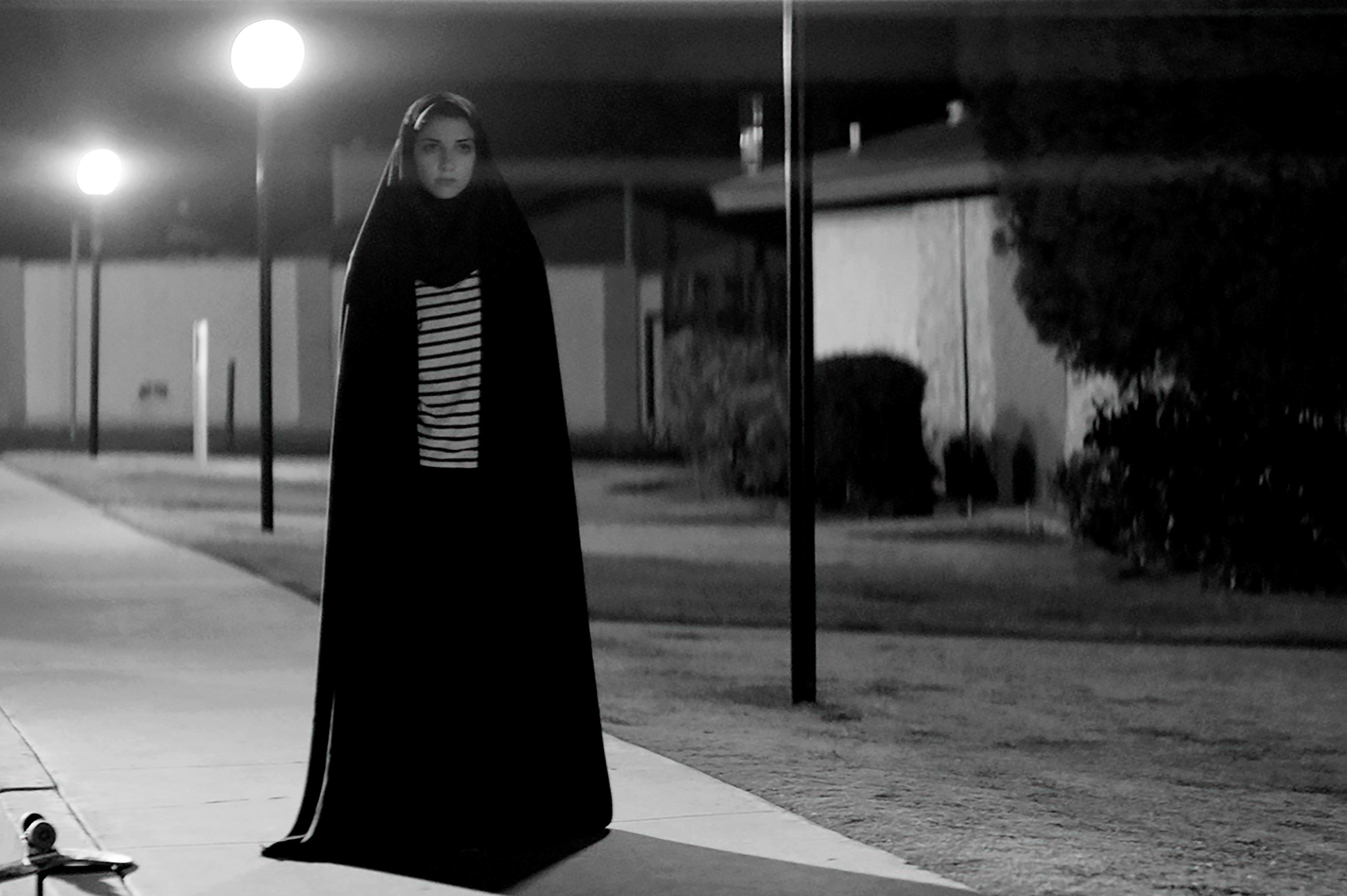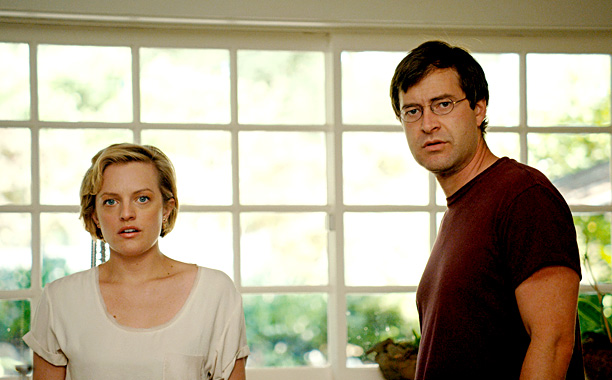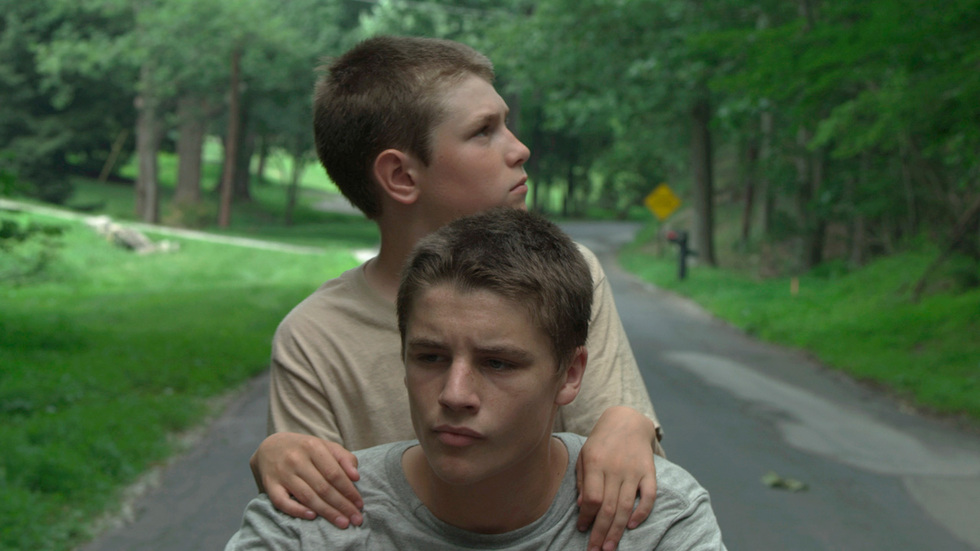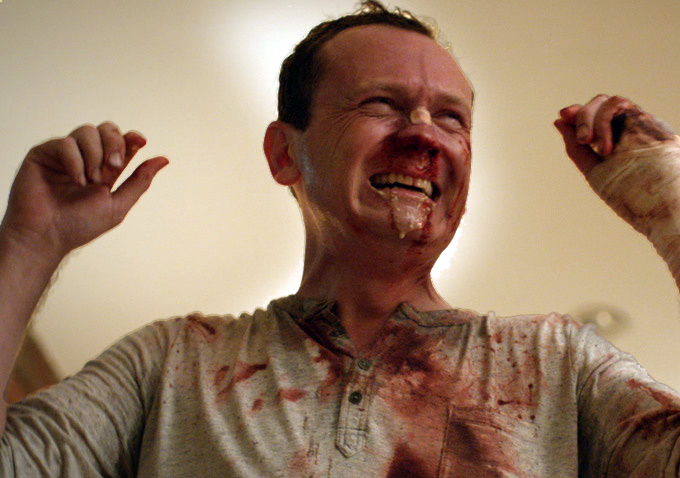By providing your information, you agree to our Terms of Use and our Privacy Policy. We use vendors that may also process your information to help provide our services. This site is protected by reCAPTCHA Enterprise and the Google Privacy Policy and Terms of Service apply.
The 11 Best Directorial Debuts of 2014

“Dear White People,” Director: Justin Simien
A bonafide satire of the Obama age, writer-director Justin Simien’s persistently funny “Dear White People” perceptively skewers virtually every facet of racial confusion in modern American society. While black comedians like Dave Chapelle and Chris Rock have provided searing insight into the absurdities of lingering racial tensions, Simien consolidates much about the paradoxes explored in those acts and many others into a wildly enjoyable and scathing farce. By exploring the heated debates between white and black students at an upscale college, Simien both mocks and provokes the nature of our seemingly progressive times by illuminating misguided assumptions and fears embedded in forward-thinking discourse. But Simien’s relentless screenplay is never too self-serious or didactic, instead pairing culturally-savvy brains with a goofy grin. [FULL REVIEW]
“A Girl Walks Home Alone at Night,” Director: Ana Lily Amirpour
 Writer-director Ana Lily Amirpour’s stunning debut, produced by Elijah Wood, follows the experiences of a small Iranian town haunted by a vampiric presence who’s just as lonely as the other locals. Shot in gorgeously expressionistic black-and-white and fusing multiple genres into a thoroughly original whole, Amirpour has crafted a beguiling, cryptic and often surprisingly funny look at personal desire that creeps up on you with the nimble powers of its supernatural focus. The director combines elements of film noir and the restraint of Iranian New Wave cinema with the subdued depictions of a bored youth culture found in early Jim Jarmusch…the comparisons go on and on, but the result is wholly original. [FULL REVIEW]
Writer-director Ana Lily Amirpour’s stunning debut, produced by Elijah Wood, follows the experiences of a small Iranian town haunted by a vampiric presence who’s just as lonely as the other locals. Shot in gorgeously expressionistic black-and-white and fusing multiple genres into a thoroughly original whole, Amirpour has crafted a beguiling, cryptic and often surprisingly funny look at personal desire that creeps up on you with the nimble powers of its supernatural focus. The director combines elements of film noir and the restraint of Iranian New Wave cinema with the subdued depictions of a bored youth culture found in early Jim Jarmusch…the comparisons go on and on, but the result is wholly original. [FULL REVIEW]
“The Babadook,” Director: Jennifer Kent
 Australian director Jennifer Kent’s feature debut “The Babadook” incorporates flickering lightbulbs, a mysterious basement and shrieking children from lesser films to create something that’s compelling even when it’s not disturbing on a primordial level. Amelia (Essie Davis) is a nursing home worker and single mom raising Sam (Noah Wiseman), her monsters-obsessed son. One day Amelia reads a book entitled “The Babadook” to Sam, and before they know it, the story from it becomes reality — is it paranormal? Or is it psychological? The Babadook” isn’t a transcendent horror film — but its ability to handle and manipulate the conventional tropes apparent in so many of its peers makes it a satisfying ride.
Australian director Jennifer Kent’s feature debut “The Babadook” incorporates flickering lightbulbs, a mysterious basement and shrieking children from lesser films to create something that’s compelling even when it’s not disturbing on a primordial level. Amelia (Essie Davis) is a nursing home worker and single mom raising Sam (Noah Wiseman), her monsters-obsessed son. One day Amelia reads a book entitled “The Babadook” to Sam, and before they know it, the story from it becomes reality — is it paranormal? Or is it psychological? The Babadook” isn’t a transcendent horror film — but its ability to handle and manipulate the conventional tropes apparent in so many of its peers makes it a satisfying ride.
“Obvious Child,” Director: Gillian Robespierre
 Ever since its premiere at the Sundance Film Festival, “Obvious Child” has carried the unwieldy status of an “abortion comedy,” but only the second half of that label is accurate. Indeed, this witty, lighthearted tale finds New York comedienne Donna Stern (Jenny Slate) ultimately getting impregnated by the sweet-natured business school grad Max (Jake Lacy) and deciding to undergo the procedure without telling him. It’s a choice that immediately distinguishes the movie from every other entry in the genre, from “Knocked Up” to “Juno,” in which the impregnated heroines eventually decide to eschew the procedure for the sake of some unspoken duty. The casual way that “Obvious Child” writer-director Gillian Robespierre (building off an original 20-minute short) rejects that tendency with her own character’s decision is a welcome rebuke. [FULL REVIEW]
Ever since its premiere at the Sundance Film Festival, “Obvious Child” has carried the unwieldy status of an “abortion comedy,” but only the second half of that label is accurate. Indeed, this witty, lighthearted tale finds New York comedienne Donna Stern (Jenny Slate) ultimately getting impregnated by the sweet-natured business school grad Max (Jake Lacy) and deciding to undergo the procedure without telling him. It’s a choice that immediately distinguishes the movie from every other entry in the genre, from “Knocked Up” to “Juno,” in which the impregnated heroines eventually decide to eschew the procedure for the sake of some unspoken duty. The casual way that “Obvious Child” writer-director Gillian Robespierre (building off an original 20-minute short) rejects that tendency with her own character’s decision is a welcome rebuke. [FULL REVIEW]
“Appropriate Behavior,” Director: Desiree Akhavan
 The latest entrant in an emerging subgenre of character-driven comedies about neurotic young New Yorkers (epitomized by the success of HBO’s “Girls”), Desiree Akhavan’s “Appropriate Behavior” provides an enjoyably shrewd update to a potentially grating formula. The first-timer writes, directs and stars this blatantly autobiographical tale of a bisexual Brooklynite still in the closet to her strict Persian parents. That lingering dilemma forms only one piece of the equation in this sophisticated and persistently witty look at urban youth culture and arrested development. Akhavan’s blend of cultural insights and sweetly relatable, self-deprecating humor provide a charming showcase for a new filmmaker worthy of discovery. [FULL REVIEW]
The latest entrant in an emerging subgenre of character-driven comedies about neurotic young New Yorkers (epitomized by the success of HBO’s “Girls”), Desiree Akhavan’s “Appropriate Behavior” provides an enjoyably shrewd update to a potentially grating formula. The first-timer writes, directs and stars this blatantly autobiographical tale of a bisexual Brooklynite still in the closet to her strict Persian parents. That lingering dilemma forms only one piece of the equation in this sophisticated and persistently witty look at urban youth culture and arrested development. Akhavan’s blend of cultural insights and sweetly relatable, self-deprecating humor provide a charming showcase for a new filmmaker worthy of discovery. [FULL REVIEW]
“The One I Love,” Director: Charlie McDowell
 The directorial debut of Charlie McDowell, “The One I Love” is romantic comedy, edging on the absurd. The film centers on Ethan (Mark Duplass) and Sophie (Elisabeth Moss), a couple on the rocks, currently experiencing a rough patch in their marriage, who take a much needed vacation one weekend. Things, however, don’t go exactly to plan. Their romantic getaway slowly transforms into a surreal experience when a discovery leads both to question love, life and their future. The dramedy premiered at Sundance earlier this year to rave reviews.
The directorial debut of Charlie McDowell, “The One I Love” is romantic comedy, edging on the absurd. The film centers on Ethan (Mark Duplass) and Sophie (Elisabeth Moss), a couple on the rocks, currently experiencing a rough patch in their marriage, who take a much needed vacation one weekend. Things, however, don’t go exactly to plan. Their romantic getaway slowly transforms into a surreal experience when a discovery leads both to question love, life and their future. The dramedy premiered at Sundance earlier this year to rave reviews.
“Palo Alto,” Director: Gia Coppola
 Borrowing liberally from the likes of “Kids” and “Elephant,” first-time feature director Gia Coppola’s “Palo Alto” is a largely familiar portrait of teen angst, but it’s also a fairly accomplished one. Loosely adapting James Franco’s collection of short stories, Coppola (the 26-year-old granddaughter of Francis Ford) assembles a scatter-shot ensemble drama carried by naturalistic performances and artful restraint. “Palo Alto” effectively showcases the despair and sophomoric rebellion of young American life with a mature eye that clearly establishes a new filmmaker to watch. [FULL REVIEW]
Borrowing liberally from the likes of “Kids” and “Elephant,” first-time feature director Gia Coppola’s “Palo Alto” is a largely familiar portrait of teen angst, but it’s also a fairly accomplished one. Loosely adapting James Franco’s collection of short stories, Coppola (the 26-year-old granddaughter of Francis Ford) assembles a scatter-shot ensemble drama carried by naturalistic performances and artful restraint. “Palo Alto” effectively showcases the despair and sophomoric rebellion of young American life with a mature eye that clearly establishes a new filmmaker to watch. [FULL REVIEW]
“Nightcrawler,” Director: Dan Gilroy

“Zero Motivation,” Director: Talya Lavie
 For a director whose first feature film is called “Zero Motivation,” Talya Lavie has ambition and enthusiasm to spare. The Israeli female director and screenwriter has been making international headlines for her directorial debut about a group of young women serving their mandatory time in the Israeli Defense Forces. But don’t mistake “Zero Motivation” for your average war film. Lavie’s satirical characters are bored, sullen and serving their country by filing papers and pouring coffee in an administrative office. Loosely inspired by Lavie’s own experience in IDF, “Zero Motivation” impressed critics and audiences at the 2014 Tribeca Film Festival where it took home the award for Best Narrative Feature. Lavie was also awarded the Nora Ephron Prize given to a female director with a distinguished voice.
For a director whose first feature film is called “Zero Motivation,” Talya Lavie has ambition and enthusiasm to spare. The Israeli female director and screenwriter has been making international headlines for her directorial debut about a group of young women serving their mandatory time in the Israeli Defense Forces. But don’t mistake “Zero Motivation” for your average war film. Lavie’s satirical characters are bored, sullen and serving their country by filing papers and pouring coffee in an administrative office. Loosely inspired by Lavie’s own experience in IDF, “Zero Motivation” impressed critics and audiences at the 2014 Tribeca Film Festival where it took home the award for Best Narrative Feature. Lavie was also awarded the Nora Ephron Prize given to a female director with a distinguished voice.
“Hide Your Smiling Faces,” Director: Daniel Patrick Carbone
 It’s not uncommon for first-time filmmakers to lean heavily on their influences in their first films — just look at how in debt Paul Thomas Anderson’s first films are to Martin Scorsese and Robert Altman. But it can be fascinating to see how a director’s personality can shine through the stylistic tics of the filmmakers they borrow from. For an example, look at Daniel Patrick Carbone’s feature-length debut “Hide Your Smiling Faces.” The film, about two brothers who are pushed to consider their own mortality after the death of a friend, is heavily influenced by early films of David Gordon Green, particularly Green’s breakthrough “George Washington.” Yet the film has a quiet menace of its own, and even critics who find it a bit too derivative to be blown away have noted Carbone’s terrific eye.
It’s not uncommon for first-time filmmakers to lean heavily on their influences in their first films — just look at how in debt Paul Thomas Anderson’s first films are to Martin Scorsese and Robert Altman. But it can be fascinating to see how a director’s personality can shine through the stylistic tics of the filmmakers they borrow from. For an example, look at Daniel Patrick Carbone’s feature-length debut “Hide Your Smiling Faces.” The film, about two brothers who are pushed to consider their own mortality after the death of a friend, is heavily influenced by early films of David Gordon Green, particularly Green’s breakthrough “George Washington.” Yet the film has a quiet menace of its own, and even critics who find it a bit too derivative to be blown away have noted Carbone’s terrific eye.
“Cheap Thrills,” Director: E.L. Katz
 Savagely assaulting the desperate state of a blue-collar family man, the comedic thriller “Cheap Thrills” establishes a ridiculous premise early on and takes it to various extremes, again and again, until you just have to accept the crazy venture on its own terms or simply give up. That’s also the situation for its dazed antihero, Craig (Pat Healy), a broke father who’s newly unemployed when he comes across the affluent Colin (David Koechner) in a bar and plays along with a series of increasingly deranged bets in exchange for monetary rewards. The metaphoric weight to the scenario is immediately evident, but “Cheap Thrills” basically uses that starting point to mess around. It asks, “How far would you go?” and then tries to find a grotesque answer. [FULL REVIEW]
Savagely assaulting the desperate state of a blue-collar family man, the comedic thriller “Cheap Thrills” establishes a ridiculous premise early on and takes it to various extremes, again and again, until you just have to accept the crazy venture on its own terms or simply give up. That’s also the situation for its dazed antihero, Craig (Pat Healy), a broke father who’s newly unemployed when he comes across the affluent Colin (David Koechner) in a bar and plays along with a series of increasingly deranged bets in exchange for monetary rewards. The metaphoric weight to the scenario is immediately evident, but “Cheap Thrills” basically uses that starting point to mess around. It asks, “How far would you go?” and then tries to find a grotesque answer. [FULL REVIEW]
READ MORE: The Best Films of 2014 According to Indiewire’s Film Critic
By providing your information, you agree to our Terms of Use and our Privacy Policy. We use vendors that may also process your information to help provide our services. This site is protected by reCAPTCHA Enterprise and the Google Privacy Policy and Terms of Service apply.


















